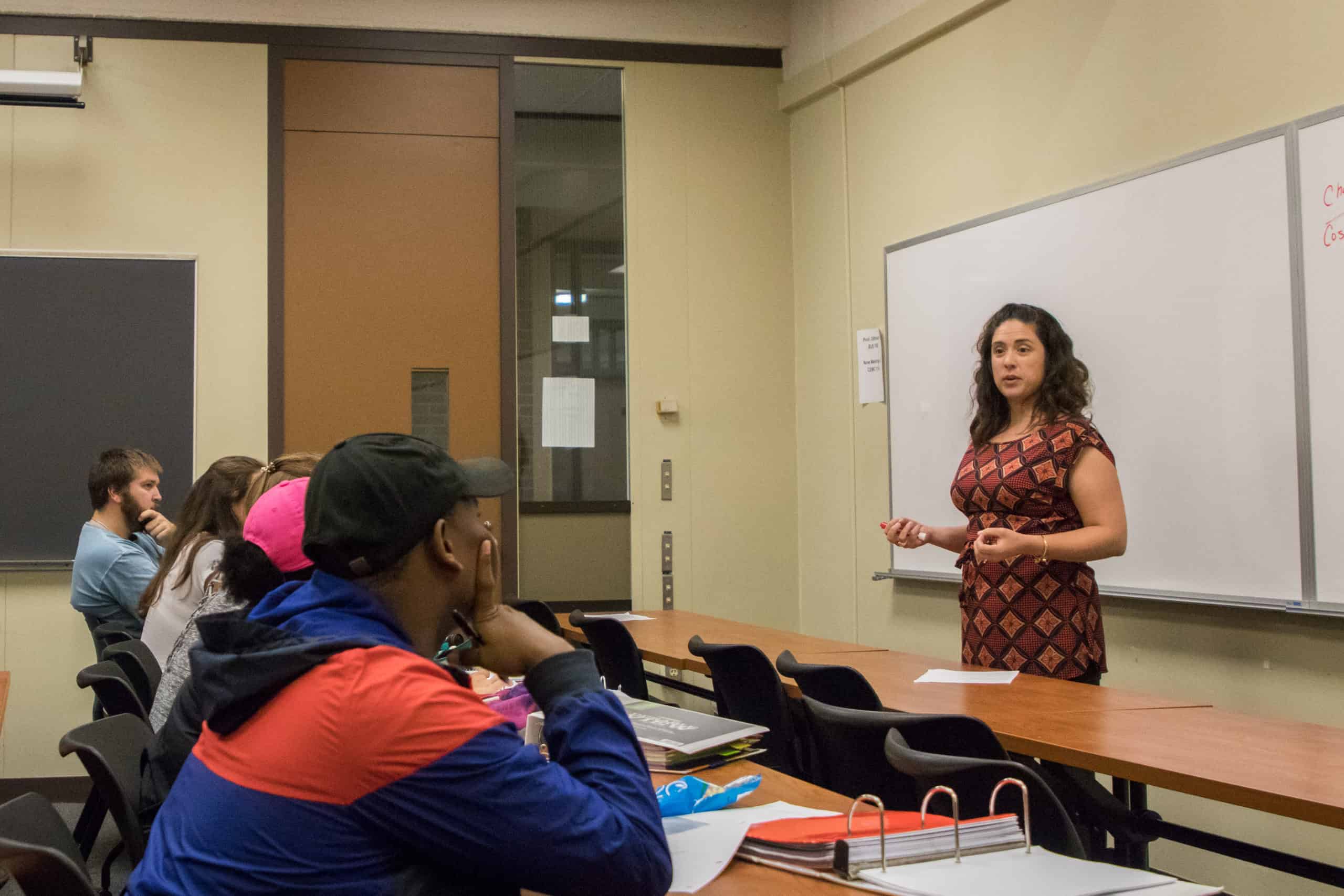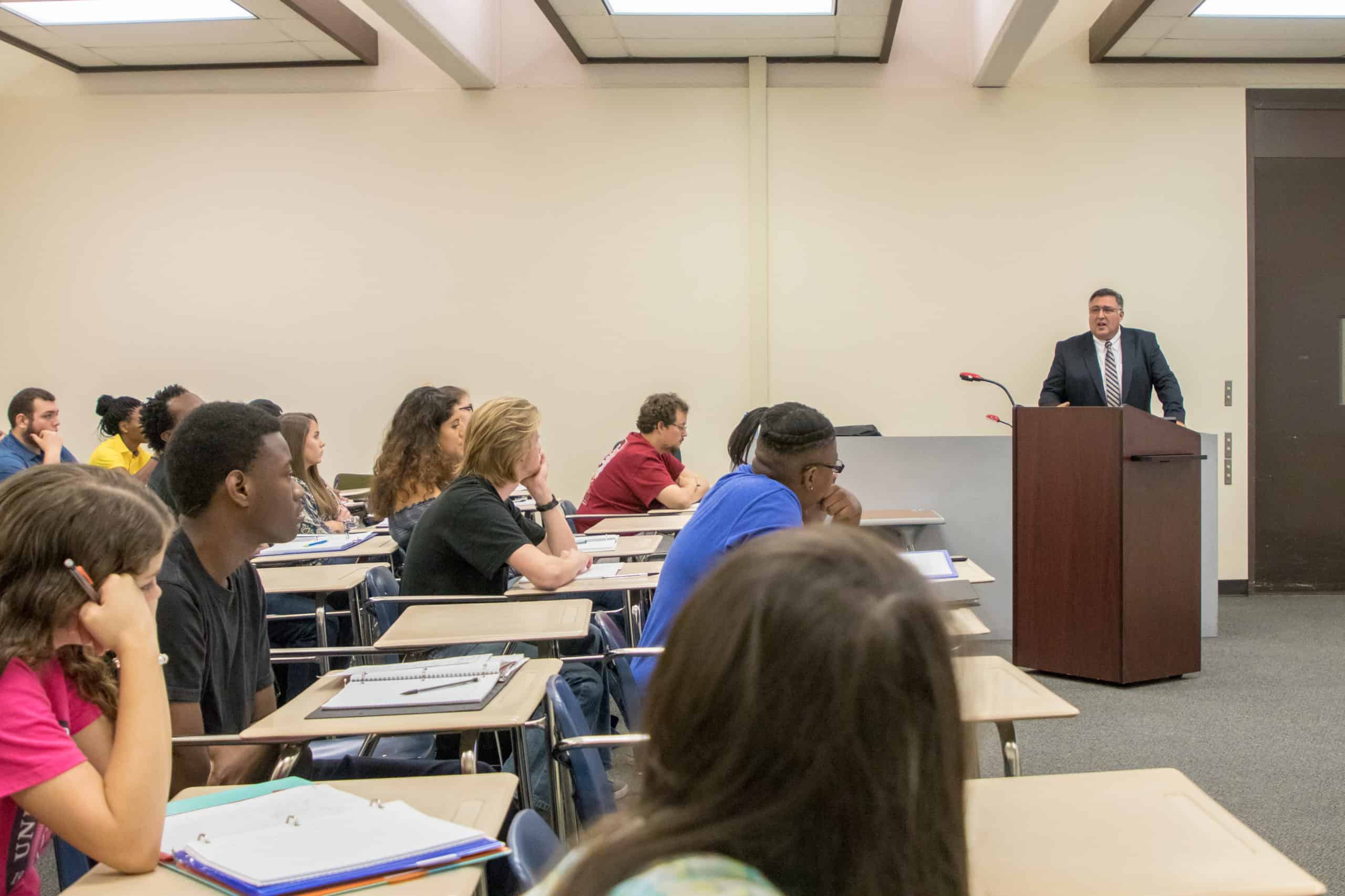Academics
Academics at FMU
The foundation you need to grow
FMU offers students more than 75 majors and courses of study. Core classes in the liberal arts and the humanities give every student the foundation they need to grow and develop as an individual. Professional schools and majors prepare them for a career in the field of their choice. FMU’s expanding graduate programs offer master and doctoral degrees for students who want to continue their studies. Explore the vast academic opportunity available at FMU!
MAJORS, MINORS, AND COURSES OF STUDY
A
E
Electronic Engineering Technology
English Education Certification
Environmental Science
Environmental Studies
M
Management Information Systems
Master in Applied Behavior Analysis
Master in Instructional Accommodation
Master in Learning Disabilities
Master in Nursing – Family Nurse Practitioner
Master in Nursing – Nurse Educator
Master in Physician Assistant Studies
Master in Teaching Learning Disabilities
Master of Business Administration
Master of Business Administration in Healthcare Executive Management
The Liberal Arts Foundation
FMU’s educational goals are sustained by the tenets and mores of the classic liberal arts tradition and seek to provide all baccalaureate degree students with the following:
- Proficiency in listening, reading, speaking, and writing
- Proficiency in the use of quantitative skills and scientific method
- Ability to access and use information
- Introductory level of knowledge in a variety of disciplines in the Arts and Sciences
- Understanding and appreciation of the Western heritage and cultures of the United States and the world
- Basic computer skills
- Global awareness and tolerance for a diversity of ideas
- Sense of individual responsibility and ability to work cooperatively
- Lifelong love for inquiry and learning


General Education Requirements
FMU’s General Education requirements are intertwined with our stated goals and seek to ensure that all students are firmly grounded in the liberal arts tradition. The foundational classes, which most students complete before advancing into the more focused academic work demanded by their majors, are designed to give students an introduction to the broad areas of knowledge essential to a successful life and career.
The General Education program provides students with a broad-based education by offering them a choice of courses from the humanities, the social sciences, the laboratory sciences and basic communications.
Through this program, students begin to acquire an awareness of the diverse cultures of the past and present. They also develop communication, conceptualization, and analytical and critical thinking skills.
PROVOST
The Provost is the chief academic officer of Francis Marion University and with the assistance of the associate provosts, school deans, and department chairs, oversees the undergraduate and graduate programs of the University.
DEANS AND DEPARTMENT CHAIRS
Francis Marion University’s academic departments and organized into three schools and the College of Liberal Arts. A dean presides of each school or college. A senior faculty member serves as chairperson of each academic department with the schools. FMU’s Rogers Library does not offer majors or degrees, but plays such a vital role in the academic life of the university that it is also led by a dean.
Dean
Dr. T. Alissa Warters
twarters@fmarion.edu
Biology
Dr. Vernon Bauer
vbauer@fmarion.edu
Chemistry
Dr. Jennifer Kelley
jkelley@fmarion.edu
English, Modern Languages, & Philosophy
Dr. Meredith Love-Steinmetz
mlove@fmarion.edu
Fine Arts
Prof. D. Keith Best
dbest@fmarion.edu
History
Dr. William Bolt
wbolt@fmarion.edu
Mass Communication
Dr. Stan Diel
sdiel@fmarion.edu
Mathematics
Dr. Thomas L. Fitzkee
tfitzkee@fmarion.edu
Physics and Engineering
Dr. Derek W. Jokisch
djokisch@fmarion.edu
Political Science and Geography
Dr. Dillon Tatum
dtatum@fmarion.edu
Psychology
Dr. Crystal R. Hill-Chapman
chillchapman@fmarion.edu
Sociology
Dr. Jessica Doucet
jdoucet@fmarion.edu
Dean
Dr. Hari Rajagopalan
hrajagopalan@fmarion.edu
Associate Dean
Dr. Johnathan G. Munn
jmunn@fmarion.edu
Interim Dean
Dr. Callum Johnston
cjohnston@fmarion.edu
Associate Dean
Dr. Cindi Nixon
cnixon@fmarion.edu
Dean
Dr. Karen Gittings
kgittings@fmarion.edu
Nursing
Dr. Rhonda Brogdon
rbrogdon@fmarion.edu
Speech Language Pathology
Dr. Frances Burns
frances.burns@fmarion.edu
Healthcare Administration
Dr. Sarah Kershner
skershner@fmarion.edu
Dean
Ms. Demetra Walker
demetra.walker@fmarion.edu